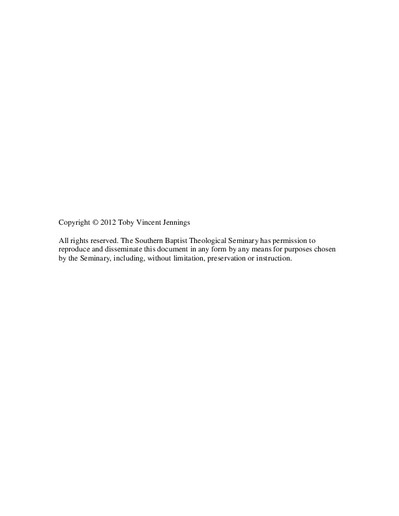| dc.description.abstract | This dissertation posits that the sin that might be termed "biolatry"--i.e., the worship of (human) life--contradicts the biblical articulation of the value of human life and results in an ethic of honoring that life above the ordinance of the God who both created and orders life and death in accord with his own infinitely good and holy purposes. The treatise aims to reorient the view by reestablishing divine revelation's assessment of the value of human life over that of the creature, resulting in joyful embrace of a biblical portrait of the value of human life in relation to the infinitely greater ethic of the glory of God, Lord of life and death.
Chapter 1 assesses the current cultural pathos regarding death. The thesis and methodology are presented, including the narrowing of the scope within the much broader context of a biblical thanatology.
Chapter 2 provides a briefing on the design and origin of death. Chapters 3 and 4 continue this briefing with exegesis, respectively, of the Old and New Testament's articulation of the value of human life and God's instrumental usage and vanquishing of death.
Chapter 5 presents various anthropological constructs in order to assert a biblical understanding of the nature and constitution of human being in light of the unparalleled reordering of the anthropological constitution effected by death.
Having grounded rationale for praxis in divine revelation, chapter 6 follows by holding forth as paradigms those offspring of Adam who rightly valued their own lives in relation to the higher ethic of joyful submission to the ordinance of humanity's Creator. These "resisted to the point of shedding blood in striving against sin" (Heb 12.4), thereby imitating the "sufferings of [their] God."
The excursus of chapter 7 addresses the providence of God in those especially emotionally difficult occurrences of death, including infant death.
The concluding chapter summarizes the premise and argumentation of previous chapters and provides admonition concerning a proper disposition toward death. Further, because death is not ultimate victor, the dissertation closes with a discussion concerning the hope of the consummation of life as its Creator intended it. | en_US |

